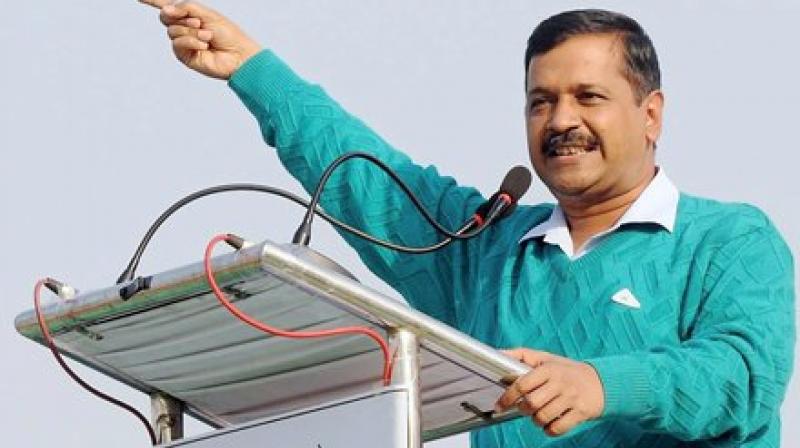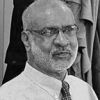Why some babus, faujis continue to serve

Election time is when many bureaucrats and military officers make a career change and enter politics. To call it a career change is not quite correct as almost all of them decide to enter politics after a long and often uneventful lifetime in the service of the nation. Also, to say “service of the nation” is not quite correct as most of their official careers are mostly spent in their own service. It is fairly uncommon to see an officer quit with a good part of a secure government career ahead for beliefs. Arvind Kejriwal is one. The BJP has a former DDA vice-chairman, K.J. Alphons, who quit in mid-career to enter politics. He became a CPI(M)-supported Independent MLA in Kerala, and is now languishing as a national executive member of the BJP. Some, like a former finance minister, quit just ahead of inquiries into corruption, as being in Opposition politics seems to give a certain immunity from a government pressing charges, lending credence to the old adage that politics is the last refuge of the scoundrel. They often also do quite well and rise to high positions, but old habits die hard, which they take to their new careers.
Some, like Gen. J.J. Singh (Retd), join after having enjoyed a comfortable, even if somewhat undeserved, post-retirement cushy constitutional position, deciding to stage a last hurrah in an elected position. He will come a cropper, as he has not chosen wisely. As did a former foreign secretary, the late A.P. Venkateswaran, who contested as an Independent for Parliament from what was then Madras. Venky deserved that and more, but he too chose badly. Goodness is not a quality the Indian electorate is usually looking for. Former home secretary R.K. Singh and former Mumbai police commissioner Satyapal Singh chose cleverly, but have yet not been called to serve. To get to serve you must be more than a good man with a resume. You should have the ability to bring in votes or pay or even be a damn nuisance if kept out. R.K. Singh tried to be the last, but Prime Minister Narendra Modi very clearly is not one who brooks any nonsense. He likes his ex-bureaucrats to be discreet and almost invisible. For all his recent rants against the Harvard-educated, he has chosen as his principal secretary a self-effacing Harvard graduate, Nripendra Mishra (MPA 1981), a former secretary to the government.
But by and large, most bureaucrats join on the verge of retirement or after retirement. Take, for instance, N.K. Singh, who till quite recently was a Rajya Sabha MP from Bihar and who was clearly very unhappy at not being given another term. He joined well after retirement, migrating from Atal Behari Vajpayee’s PMO to Nitish Kumar’s durbar. With people like him it’s a desire to be centrestage rather than do anything significant that matters. On his last day as an MP, N.K. Singh made an impassioned speech demanding a special status for Bihar. I heard it. It was very good. But what did he do the previous six years? His predicament reminds me of Kabir’s famous doha: “Dukh Mein Simran Sab Kare, Sukh Mein Kare Na Koye Jo Sukh Mein Simran Kare, Tau Dukh Kahe Ko Hoye,” found a new vocation in politics. I often wondered if Indira Gandhi’s acutely sensitive antenna picked up whiffs of politics in his makeup when she chose not to make him Army Chief? In hindsight she was right. His supersession gave his life a new direction and he did really well till he started seeing visions of Shiva instructing him to vastly enlarge the pilgrimage to Amarnath to see the seasonal ice formation.
In this he reminds me of the famous bhakta Ramadasu of Bhadrachalam temple fame. Kancharla Gopanna was the tehsildar of Palwancha when he had a vision of Lord Ram asking him to build a great temple at Bhadrachalam. He started doing just that, using Sultan Quli Qutb Shah’s revenues in the process. For his pains he was incarcerated in a dungeon in Golconda, where he wrote his famous kirtans that made him immortal. The BJP has a bit of a tradition in taking retired military officers. Gen. V.K. Singh, of the two birthdays fame, joined after spending many months as a follower of Lance Naik Kisanrao Hazare, better known as Anna Hazare. While he was an Anna acolyte, V.K. Singh vigorously denounced politics and politicians, but it seems in his case too “the spirit was willing, but the flesh was weak” (Mathew 26:41). He just couldn’t live up to the high moral levels he once aspired to. But many government officials who quit their careers midstream and take to politics do so like a duck takes to water. The most notable of them was former Prime Minister Morarji Desai, who resigned his job as a deputy collector and answered the Mahatma’s call. Bhairon Singh Shekhawat, the late vice-president, was a head constable in Rajasthan when he became a RSS full-timer.
Former home minister Sushilkumar Shinde was a sub-inspector in the Maharashtra police intelligence wing when he caught the eye of Y.B. Chavan. I wonder if Chavan saw in him a better minister than a sub-inspector? But many do so well. M.S. Gill, who rose to the high constitutional position of chief election commissioner, entered the Rajya Sabha as a Congress MP. He then became a lowly MoS in the sports ministry when his fellow Congress Rajya Sabha member Suresh Kalmadi ran circles around him and milked the otherwise non-descript Commonwealth Games for a tidy sum. Mr Kalmadi himself was a former IAF squadron leader. But the daddy of those who opted to serve after a lifetime of service is the present governor of Jammu and Kashmir, N.N. Vohra. He retired from the IAS after 34 years, with his last post being defence secretary. He had served as principal secretary to Prime Minister Inder Kumar Gujral in 1997-98 and was a member of the National Security Advisory Board from 1998 to 2001 when the NDA government was in power. He also headed the National Task Force on internal security. In between, he also served as director of the India International Centre. He has been J&K governor since 2008 when he took over from Lt. Gen. S.K. Sinha. For his service to the nation, Mr Vohra was awarded the Padma Vibhushan in 2007. He never tires of serving.
The retired bureaucrats who take a chance with electoral politics are perhaps seeking to extend their usefulness to society in another way and we should be happy that the few who do so choose to do it. But it is the serving bureaucrat who is currying favour and courting public recognition that we should worry about. They are usually a bunch of panderers who will give our today for their tomorrow. Such persons permeate our system and have little reason to seek to change the system that gave them a second life. It used to be that retiring bureaucrats were required to stay out a cooling-off period of two years before seeking re-employment in the private sector. This was ostensibly to preclude them from doing favours while in service for the benefit of re-employment. I think bureaucrats interested in prolonging engagement in government can equally do favours of another kind, like fudging economic data that will make their political masters look good. They too require a cooling-off period, say of two years. Vijay Merchant, the famous cricketer, once said: “It is better to retire when people can still ask why, rather than wait till people say why not?” It applies equally to our senior civil servants and top military officers.

